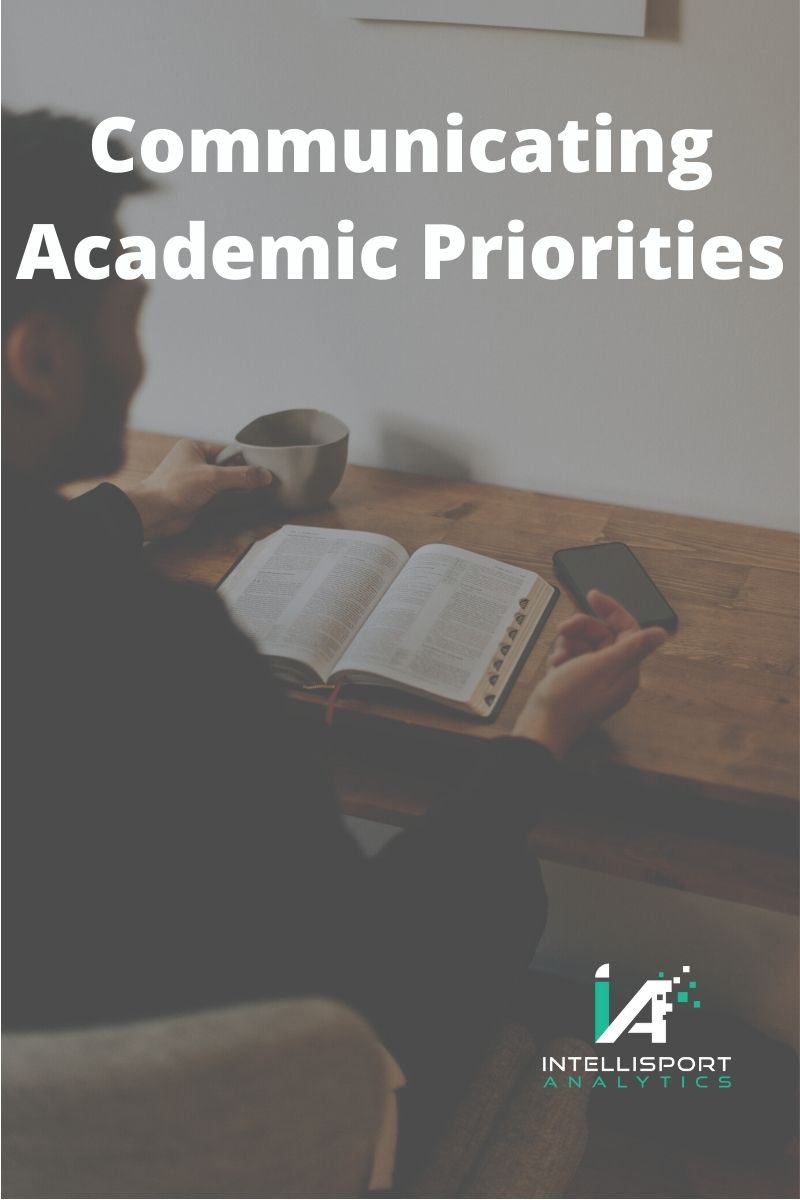Part of the In-Depth section of IntelliSport’s website will serve to highlight and summarize important research for sports leaders. Academic research can often be cumbersome to read and not found in the inboxes of sports industry professionals. Yet, there often many compelling bodies of work from academia that offer significant insights to inform the policy of sports leaders. In-Depth will serve to bridge this gap, providing sports leaders with relevant and easily digestible information that spurs reflection and insight into their own leadership and organization’s needs.
Recommended Read:
Jayakumar, U. M., & Comeaux, E. (2016). The cultural cover-up of college athletics: How organizational culture perpetuates an unrealistic and idealized balancing act. The Journal of Higher Education, 87(4), 488-515.
Link: https://tinyurl.com/ypw6cddx
In-Depth Brief:
Authors Jayakumar and Comeaux hypothesize that collegiate athletes are constantly forced to make difficult decisions between their academic and athletic lives. They argue that collegiate athletics departments push a narrative of balance, where student-athletes are able to achieve excellence in both academics and athletics without sacrificing in either discipline. The scholars make the claim that this narrative is in fact part of a “cultural cover-up,” where espoused values that prioritize academic achievement are frequently undermined by language that encourages athletes to place greater emphasis on their athletic goals at the “expense of their academic futures.” The data collected by the authors point to inherent tensions within sports organizations that impact the behavior and socialization of student-athletes, often leading to the erosion of the academic priorities of students. The authors suggest several policies to reduce the impact of athletics overshadowing the academic aspirations of students:
- Encourage students to engage with faculty, non-athlete peers, use collaboration for academic assignments, implement undergraduate research opportunities, and use required writing-intensive courses.
- Address the disconnect between the stated values of academics and athletics and how messaging within the athletics department can undermine the efforts and goals of students in the classroom.
In-Depth Insight:
This research piece can be interpreted as controversial, it argues athletics departments are complicit and often actively working to undermine the academic achievement of student-athletes (a term the scholars actively avoid and openly condemn due to the wide acknowledgment that the NCAA created the term to prevent students from organizing as employees). It would be too simple to group this scholarship into the category of “bashing the college athletics establishment.” As is often the case with qualitative research, this research can only be generalized to the population that was studied (approximately 25 student-athletes and staff at a Division I institution), but what can be discerned and widely adopted are their implications and suggestions for policy.
In my time as a Division I coach, I sometimes witnessed student-athletes making academic compromises in the name of athletics, but this was not the rule, it was often the exception. We had strong team and athletic department values that held athletes to a standard, dictating their ability to train and compete. These values were upheld at various check-points in the athletics departments, from peers, to academic-athletic advisors, major advisors and the coaching staff. While this research asserts that messaging from departments can obscure the importance of academics, this may only occur at institutions with misguided departmental values or priorities.
Yet, the authors argue there is a lack of adequate and honest communication between athletes and coaches and, athletics departments acquiesce in their accountability to students. Jayakumar and Comeaux state that the inherent reward structures in place motivates coaches and departments in ways that undermine the academic achievements of students. There are strong financial rewards to producing winning seasons, whereas strong academic performance is not equally rewarded. The pressure to win is real, from high profile sports such as football and basketball programs to olympic sports. It is clear that athletics department leaders need to find ways to support coaches to ensure that the pressure to win and threat of losing does not compromise the academic future of college athletes.
I recently finished reading John Thompson’s autobiography, the renowned head basketball coach at Georgetown University and a well-documented advocate for his athletes to attain their academic degree. He said it best when it comes to the fiduciary role of institutions have to ensuring students achieve academic success:
There is more to a coach’s win-loss record than wins and losses. Is Georgetown first and foremost an educational institution, where we care about what goes on with these kids outside the gym? Or is Georgetown more like professional sports, where winning is the only thing that matters? Part of what hurt so badly was that I built a program to educate the kids at all costs, not to win at all costs (I Came as a Shadow, John Thompson, 2020).
These scholars point out that athletics departments may be unintentionally undermining the academic success of college athletes, and as John Thompson pointed out, it is the responsibility of athletics leaders to prevent that erosion from occuring. Increasing an athletics departments’ self-awareness of how they communicate athletic and academic values and priorities is the most important lesson these scholars offer. This is a strong reminder for those who lead athletes and coaches, that when rewards are solely based on winning on the “field,” there will be losers in the classroom.
In-Depth Action:
The following suggestions are to help guide sports leaders ensure athletics department messaging does not obscure the importance of the academic life of students:
- Assess how and how often a department messages the role of academics in the lives of athletes
- Determine who are the key spokespeople who constantly message the priorities of athletics and academics
- Survey and interview athletes to understand their perceptions of the balance between academics and athletics




